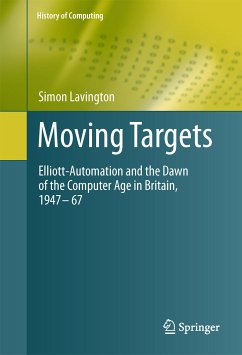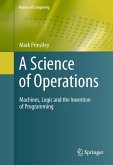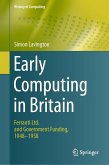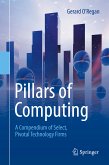Moving Targets charts the gradual take-up of information technology in Britain, as seen through the eyes of one innovative company. The book examines how the dawn of the digital computer age in Britain took place at various times for different applications, from early government-sponsored work on secret defence projects, to the growth of the market for Elliott computers for civil applications.
Topics and features:
- Charts the establishment of Elliott's Borehamwood Research Laboratories in 1946, and the roles played by John Coales and Leon Bagrit in reviving an ailing company
- Examines early Elliott digital computers designed for classified military applications and for GCHQ, such as the Elliott 152, 153 and OEDIPUS
- Describes the analogue computers developed by Elliott-Automation, including the giant TRIDAC
- Reviews the development of the first commercial Elliott computers, the growth of applications in industrial automation, and the competition offered by rival manufacturers in Britain
- Includes a history of airborne computers up to 1988, written by a former director of Elliott Flight Automation
- Discusses the evolution of computer architectures and systems software for the Elliott 800, 900 and 4100 series computers
- Investigates the mergers, takeovers and eventual closure of the Borehamwood laboratories, and the demise of Elliott-Automation and its successors, ICL and GEC
This unique text will be of greatinterest to historians of technology and business, and will also appeal to the general reader curious about the emergence of digital computing in Britain and the work of the previously unsung computer pioneers of the Elliott-Automation laboratories at Borehamwood.
Simon Lavington is Emeritus Professor of Computer Science at the University of Essex. Among his many publications is the book Early British Computers.
Dieser Download kann aus rechtlichen Gründen nur mit Rechnungsadresse in A, B, BG, CY, CZ, D, DK, EW, E, FIN, F, GR, HR, H, IRL, I, LT, L, LR, M, NL, PL, P, R, S, SLO, SK ausgeliefert werden.
"Moving Targets details the history of Elliott Brothers in 1947 through to the last vestige of those families of Elliott's computers in GEC Computers in the 1990s. The title of the book Moving Targets is surely a reference to the recurring technical and marketing themes described by the book. ... there is no doubt that the whole book is exceptionally well researched to a superb accuracy. ... the book contains many interesting pictures." (Roger Newey, Resurrection - The Bulletin of the Computer Conservation Society, Issue 55, Summer, 2011)
"This book focuses on making the history of computing more accessible to a wider audience by linking it to broader historical changes. ... The text's excellent tables, charts, and photos enhance the discussion of technological, economic, and political change. ... the author is to be congratulated for a highly readable, wide-ranging account that shows the virtue of broad-based histories of computing that do nottake the limitsof a specific industry or field of applications as their own." (Marie Hicks, Technology and Culture, Vol. 53, July, 2012)
"In his latest book, Lavington scrutinizes the extensive work carried out by the employees of this company, and, thanks to his extensive efforts ... . The book comprises 14 chapters and 11 appendices. ... It is supported by extensive references, cited at the end of each chapter. ... this erudite book should appeal to a wide readership, and Lavington should be highly commended for the sterling work that he has carried out in its preparation." (Barry Blundell, ACM Computing Reviews, November, 2011)









